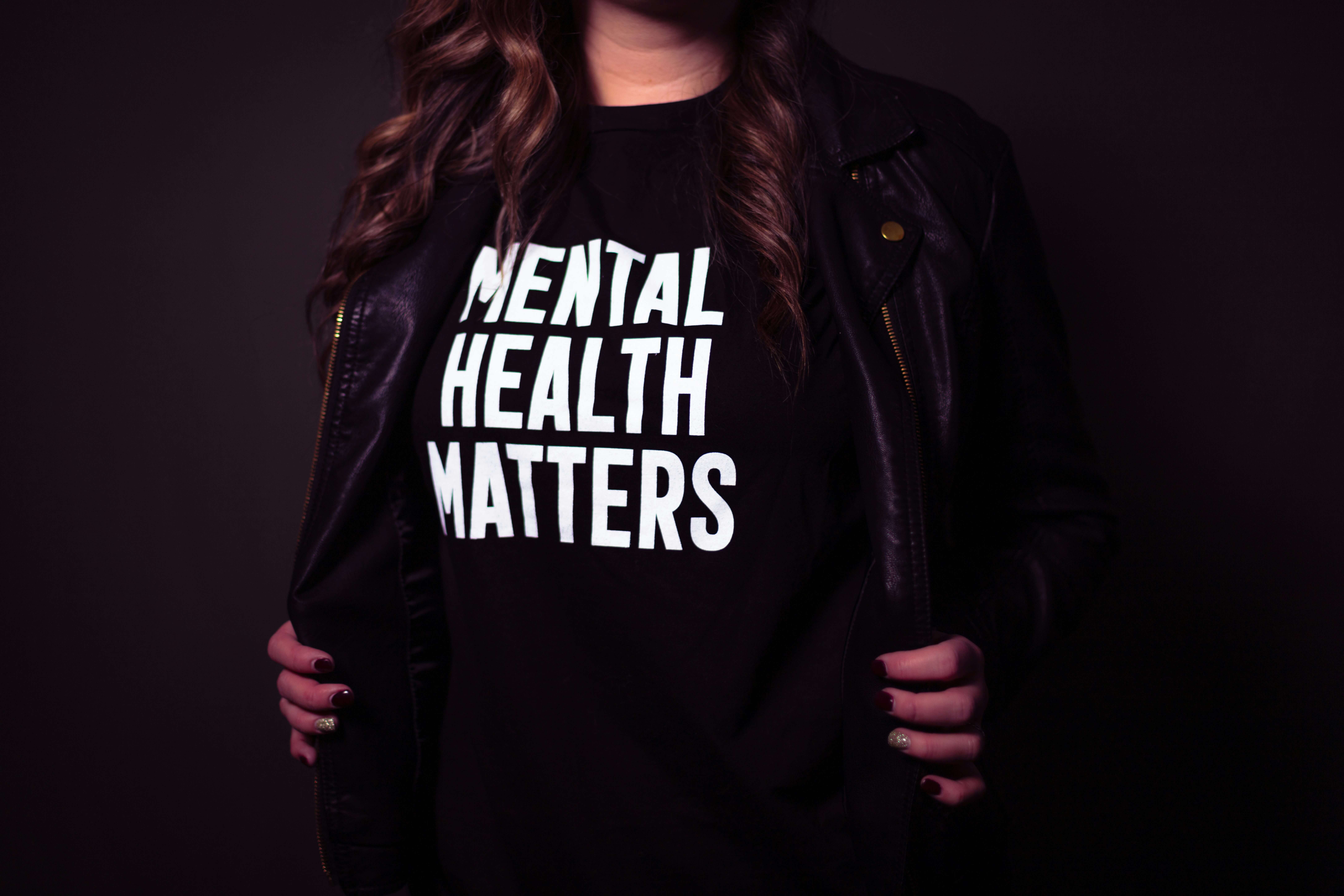Anxiety and depression are common mental health conditions that can significantly impact the lives of the person struggling and those around them. These relentless disorders cause emotional turmoil and disrupt daily functioning for individuals and families, leading many people to wonder… “Can anxiety and depression actually be cured?”. As you might expect, the answer is not black and white. While these conditions may not be ‘cured’ in the traditional sense, they can be effectively managed giving individuals and families the breakthrough they need. With the right professional treatment approach, individuals can lead fulfilling, productive lives despite these mental health challenges.
At Fountain Hills Recovery, we offer a wide variety treatments for anxiety and depression, with an emphasis on the importance of a holistic approach to mental health treatment. We’ll delve into therapies, lifestyle changes, and support systems that can aid in overcoming depression. Whether you’re a family member seeking to understand and support a loved one, or you’re personally trying to work through these conditions, Fountain Hills Recovery is here to help and offer hope.
Healing, recovery and thriving beyond mental health disorders are all possible with the right guidance.
Understanding Anxiety and Depression
Anxiety and depression are complex mental health disorders. They affect millions of individuals worldwide, with numbers continuing to grow, impacting their emotional and physical well-being. Understanding these conditions and how to effectively manage them, is the first critical step toward recovery.
Traditionally speaking, anxiety often manifests as intense fear or worry. It may cause physical symptoms like a racing heart or fatigue for what feels like unnecessary reasons. Depression however, can often feel like a persistent sadness or consistent loss of interest in activities you used to enjoy, such as music, art, exercise, playing with your kids, working, etc.. But if you are reading this article, then you may have already known those basic definitions so let’s move into deeper understanding and solutions.
What we’ll continue to reiterate time and again, is that these conditions are not a result of personal weakness or a lack of willpower. This is a common misconception that must be broken. Anxiety and depression can actually be influenced by genetic, environmental, and psychological factors. Research shows that chemical imbalances in the brain play a significant role in mental health disorders like anxiety and depression.
We have found the most effective treatment requires a personalized approach, where addressing both emotional and physiological aspects can lead to better outcomes. It’s crucial to consider therapy options, lifestyle changes, and even medication assisted treatment where appropriate. It’s always important to remember that the journey to mental wellness involves patience and understanding. Recovery takes time and effort, but it is achievable.
The Link Between Anxiety and Depression
Anxiety and depression often coexist, and also can intersect with substance abuse, complicating the path to recovery. This overlap can make diagnosis and treatment challenging without professional support. Both depression and anxiety share similar risk factors, such as trauma or significant life changes. These shared elements contribute to their frequent co-occurrence. Thankfully this interconnectedness means that addressing one can benefit the other.
Recognizing the Signs and Symptoms
Recognizing the signs of anxiety and depression is the first step toward getting help. Awareness allows individuals to seek treatment early, which improves outcomes.
There are specific signs to watch for in individuals struggling with these conditions:
- Sudden changes in appetite or weight
- Difficulty concentrating or making decisions
- Irritability or feelings of hopelessness
- Frequent physical complaints, like headaches or stomachaches
- Avoidance of social situations or activities
Recognizing these signs can prompt action and lead to timely support. It’s essential to approach symptoms with empathy and encourage seeking professional help. Early intervention is key to managing these disorders effectively and fostering a path to wellness.
Can Anxiety and Depression Be Cured?
The big question of whether anxiety and depression can be cured is again complex but worth exploring. Rest assured that both are treatable conditions, but the concept of a “cure” varies. Some individuals achieve long-lasting relief with professional treatment, whether that be more focused inpatient treatment, outpatient treatment, etc. while others manage their symptoms over a longer period of time. Regardless of the path you choose, it’s crucial to understand that “cure” might not mean the total absence of symptoms. Instead, it might involve reaching a state where symptoms are minimal or manageable. Many people find a way to live fulfilling lives despite these conditions.
Treatment often focuses on symptom reduction and improving quality of life. A personalized approach considers the unique factors affecting each individual. It involves therapies, lifestyle changes, and sometimes medication. One of the most important factors, is continuous support and self-care in maintaining mental well-being. Remember to love yourself unconditionally and remain hopeful. Building resilience and coping skills can also help in managing symptoms. These strategies contribute to significant improvement for individuals and improved quality of life for everyone involved. With the right support and resources, many individuals overcome the challenges posed by anxiety and depression. Recovery is possible, though it may look different for everyone so don’t be too hard on yourself.
“Anxiety and depression are treatable conditions. The most effective approaches typically include a combination of psychotherapy, such as cognitive-behavioral therapy (CBT), and medication when appropriate. Regular physical activity, a healthy diet, and adequate sleep can also play a critical role in recovery.”
– American Psychiatric Association (APA)
The Role of Professional Treatment
Professional treatment like we offer at Fountain Hills Recovery, plays a crucial role in managing anxiety and depression. Trained therapists and psychologists offer valuable insights and support that simply can’t be achieved trying to self-manage anxiety & depression.Eexperienced mental health professionals provide immense and have a passion for helping individuals understand their conditions. Our programs are proven to help each and every client develop specific coping strategies that meet their personal situation and lifestyle.
As mentioned above, therapies such as cognitive-behavioral therapy (CBT), is often the cornerstone of treatment. CBT does an excellent job addressing negative thought patterns and behavioral changes required to recover from these disorders. This structured approach empowers individuals to manage symptoms effectively. In some cases, medication can provide additional support but this is never our first step. Antidepressants or anti-anxiety medications may be prescribed for those who qualify, and we do trust that properly prescribed anxiety and depression medication can help balance brain chemistry, reducing symptoms and improving well-being.
Overall, professional support is key as it provides guidance and reassurance. It offers a safe space to express emotions and discuss challenges. Professional treatment can be vital for individuals seeking recovery, just know that this journey requires commitment and openness. Being proactive about mental health can make a significant difference. Accessing professional treatment is a big step towards lasting change that many people are afraid to take.
The Journey to Recovery: A Process, Not a Destination
Recovery from anxiety and depression is an ongoing process not a destination. It involves continuous effort and the willingness to adapt as life will throw each and every one of us unexpected challenges. Understanding recovery as a journey can provide comfort and clarity that you haven’t been unable to reach yet. Remember each person’s path is unique, reflecting their personal experiences, weaknesses and strengths. It’s not about reaching an endpoint but rather improving your quality of life. Small steps can lead to significant changes over time, and consistency and repetition of good habits is critical to your mental well being. Building resilience to adversity helps individuals adapt to challenges and setbacks. This fosters a sense of empowerment and control over one’s mental health, that a lot of people simply can’t achieve without practice and intention.
At our professional treatment center outside of Phoenix, we also preach patience, which is essential during the recovery journey. Progress can be gradual, and setbacks may occur which is perfectly normal. Embracing this reality can reduce frustration and maintain motivation as you navigate challenges with mental health. It’s important to celebrate victories, no matter how small. Acknowledging achievements fosters a positive mindset, reinforcing the belief in one’s ability to overcome and thrive despite challenges.
Holistic Approaches to Mental Health Solutions
Holistic approaches to mental health are built to emphasize treating the whole person. This means looking beyond symptoms to their root causes, taking into account physical, emotional, and spiritual well-being. Holistic methods often incorporate diverse therapies such as equine therapy, music therapy, mindfulness practices and lifestyle changes. At Fountain Hills Recovery, we’ll aim to create balance and harmony in each of our clients’ lives, extending well beyond the program. This comprehensive perspective can provide deeper healing.
Mindfulness is a core element of holistic strategies, as it encourages staying present and awareness of thoughts and emotions. We’ve found that regular mindfulness practice can significantly reduce stress and anxiety.
Alternative therapies, like yoga or other recreational therapies, offer complementary benefits. These can enhance relaxation and promote a sense of calm. They provide a physical outlet for tension and stress. Integrating these approaches with traditional treatments often yields the best outcomes. Collaboration between healthcare providers ensures personalized care. This combined effort maximizes the potential for recovery and sustained wellness.
Integrating Mind, Body, and Spirit in Treatment
Integrating mind, body, and spirit is essential in holistic treatment. It involves recognizing the interconnectedness of mental and physical health, and shows that addressing one aspect can positively impact the others.
Mental health benefits from practices that soothe the mind. Meditation and breathing exercises enhance mental clarity and reduce anxiety. Mastering these simple but essential exercises, equips you with powerful free tools to manage stress effectively.
Physical health directly influences emotional well-being. Regular physical activity releases endorphins, boosting mood and energy. Introduce a well balanced diet, and your begin to support brain function and overall health.
Spiritual health can be nurtured through personal beliefs and practices. It doesn’t necessarily need to relate to religion, but involves finding meaning & purpose. This could involve meditation, connecting with nature, getting more involved with community/volunteer or any other self-care fulfilling activities.
Combining these elements leads to a comprehensive treatment plan. It respects the individual’s unique needs and preferences. This integrated approach fosters resilience and encourages healing on multiple levels.
Overcoming Depression with Professional Care
Overcoming severe depression & anxiety requires a professional & personalized approach that considers the individual’s unique history and needs. A thorough assessment from an experienced professional will help identify the best treatment plan, which involves exploring the individual’s recent & historical symptoms, general lifestyle including any relationships they have with substances like alcohol and drugs. This assessment requires honesty and commitment, allowing for the creation of a comprehensive recovery strategy by our clinical team.
Therapies are then selected based on what suits the individual best interests. Techniques may include talk therapy, lifestyle adjustments, and support groups. This combination helps address depression & anxiety from multiple angles.
Personalized care acknowledges that recovery is a journey. It encourages setting realistic goals and celebrating small successes. Recognizing progress boosts motivation and self-efficacy.
The collaborative relationship between the individual and their healthcare provider is key. Open communication ensures that treatment evolves with changing needs. This partnership fosters a sense of empowerment on the path to healing.
Cognitive-Behavioral Therapy and Other Psychotherapies
Cognitive-Behavioral Therapy (CBT) is a highly effective tool in treating depression, as it most often focuses on changing negative thought patterns and behaviors. The aim is to replace these with healthier ones, contributing to mood improvement and clears the way for new positive patterns. CBT involves structured sessions with extensively trained therapists. During these sessions, individuals learn to identify harmful thoughts and then work on developing coping strategies for challenging situations.
Other psychotherapies offer different benefits. Interpersonal Therapy (IPT) focuses on improving relationships and communication skills. It’s especially useful for depression linked to personal conflicts or life changes. Dialectical Behavior Therapy (DBT) combines CBT techniques with mindfulness. DBT is effective for those needing help with emotion regulation. It teaches skills to handle distress and build resilience.
These therapies, among others, provide valuable support. They equip individuals with tools to manage depression long-term. Each person’s unique needs determine which psychotherapy is most beneficial.
Medication Management: Finding the Right Balance
Medication can also play a crucial/necessary role in some cases. Antidepressants can help correct chemical imbalances in the brain, but need to be properly managed. If used appropriately, they offer relief from symptoms, paving the way for other therapies to work.
Finding the right medication takes time and patience, and involves close collaboration with your healthcare provider. Adjustments are often needed to achieve the best results, as open communication and balance are key when using medication. It’s important to weigh the benefits against any side effects. Regular follow-ups, journaling throughout medication cycles, etc. will also help monitor progress and make necessary changes.
Medication is most effective when combined with other holistic treatments, including holistic therapy, lifestyle changes, and support systems. Each element works together to enhance overall well-being. Remember, deciding to use medication is a personal choice. It’s influenced by individual circumstances and preferences. Informed decision-making, guided by professional advice, leads to the best outcomes.
Support Systems and Community Resources for Mental Health
Developing and maintaining support systems play a vital role in recovery from anxiety and depression, as they provide comfort and understanding during challenging times. Connecting with others who share similar experiences can be incredibly beneficial and is one of the greatest benefits of professional treatment at Fountain Hills Recovery.
Ultimately, support systems and community resources foster healing. They empower individuals to overcome obstacles. Understanding available options is a step toward building resilience and hope.
The Importance of Family and Peer Support
Family and peer support are invaluable in managing anxiety and depression. Loved ones offer emotional and practical assistance that only the person suffering can understand. Their presence provides a sense of safety and encouragement outside of professional treatment that is essential to long-term recovery.
Understanding the role of family in recovery is crucial, and the more family members can educate themselves about mental health conditions, the better. This understanding fosters empathy and effective communication throughout the family support group.
Peers with similar experiences offer unique insights similar to that of family, and often another level that is needed even beyond direct family. They provide perspective that only comes from shared struggles. Peer support enhances motivation and promotes healing.
Building a strong support network is key to recovery. Open dialogue is essential for fostering trust. Encouraging honest conversations can improve relationships and mental wellness.
Family and peer support make a significant difference. They contribute to a nurturing environment for recovery. Emphasizing their role underscores the value of connection and empathy.
Finding Credible Local Resources for Mental Health
Accessing resources online is easier today with diverse resources available online, but be cautious and make sure they are credible. When in doubt, reach out to a primary mental health treatment facility like Fountain Hills Recovery. Even if we are not the best fit for your situation, we can help you find the most credible resources or partners in your area that meet your insurance or personal needs.





